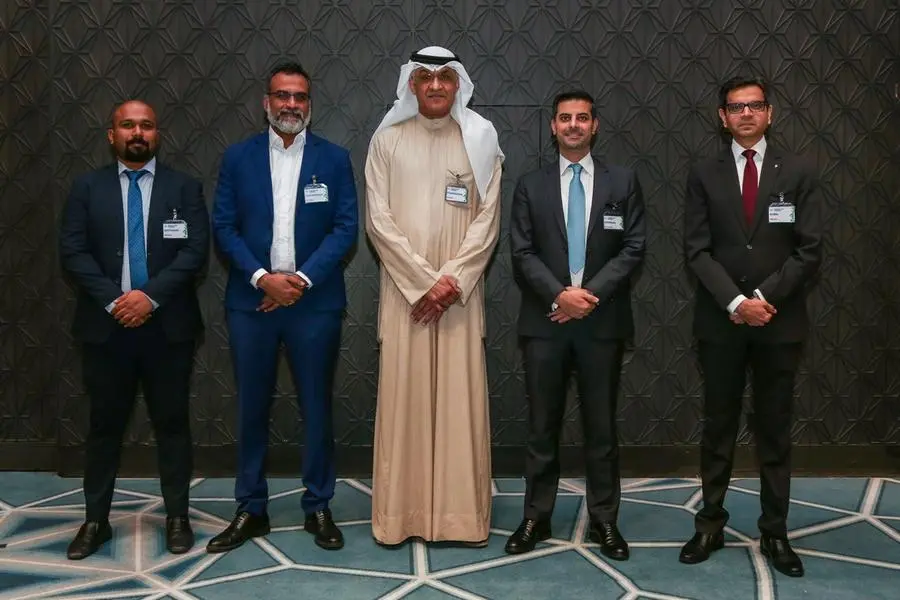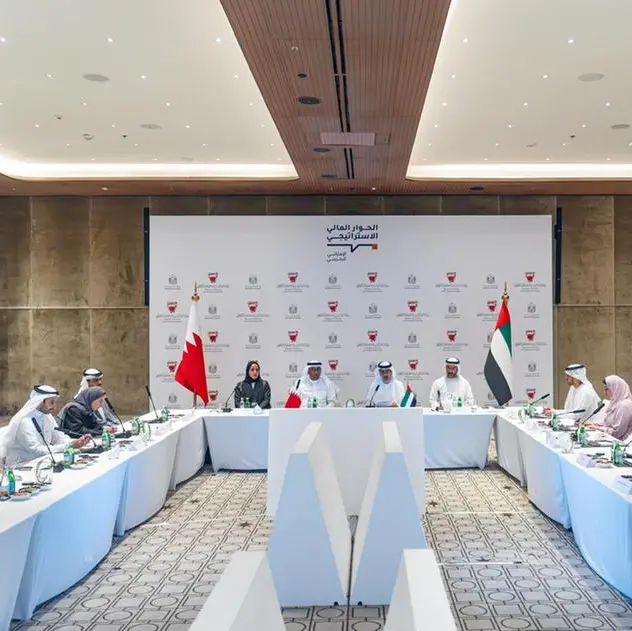PHOTO
Kuwait – Considering rising investor concerns and expectations pertaining to environmental, social and governance (ESG) issues, KPMG in Kuwait held an exclusive seminar to help organizations understand how they can integrate ESG into their businesses on 29 November 2023. The event also aimed to put more light on the implications of climate change, their impact on businesses’ bottom line, and how potential opportunities within the marketplace can be leveraged.
The seminar came in the light of climate change emerging as a matter of increasing global urgency and a potential marketplace both locally and globally. As a result of this upshot, organizations are finding it challenging to tackle climate-related risks and/or tap into possible growth pools.
Opening the event, Dr. Rasheed Al-Qenae, Managing Partner, KPMG in Kuwait, said, “Last year, at the COP27 conference in Egypt, Kuwait committed to achieving Net-Zero by 2060 and becoming carbon neutral in the oil and gas sector by 2050. Today, ESG has not only emerged as one of the most accelerated risks and opportunities but also serves as a critical framework to assess the sustainability and ethical impact of businesses and investments. That is why it is paramount that organizations aligned their goals with sustainable values to contribute to the commitment and fulfil their business ambitions. ESG issues are no longer limited to parts of the world. They are transcending borders and are as real as any other global emergency. Solving them will require organizations to press play and act swiftly in order to drive wider positive impact and stay relevant within the investor community.”
The seminar focused on all three components of ESG, i.e., environment, social and governance, and featured three guest speakers: Charbel Moussa, Decarbonization Subject Matter Expert and Partner, KPMG Netherlands, Kal Subramanian, ESG Subject Matter Expert, KPMG in Bahrain, and Naren Pasupalati, ESG Subject Matter Expert, KPMG in Bahrain. The speakers laid special emphasis on how business leaders can lead sustainable development from the front, contribute to the sustained well-being of communities, promote IDE (inclusion, diversity and equity) and uphold human rights.
Speaking at the session, Charbel Moussa, Decarbonization Subject Matter Expert and Partner, KPMG Netherlands, highlighted the importance of transparency, accountability and ethical leadership across organizations. He said, “Companies need to proactively embed ESG as an integral part of their organizational strategies to successfully manage the associated risks and capitalize on the opportunities. Putting in place key ESG implementation and reporting measures will help organizations cater to the needs of investors, customers and regulators for sustainability-related information, and contribute toward strengthening the national ambitions set out in the Kuwait National Development Plan and New Kuwait 2035 while helping monitor the progress.”
Boursa Kuwait made a formal commitment to drive corporate sustainability in financial markets in 2017, introducing its initial Sustainability Disclosure Guide and subsequently becoming a member of the United Nations Sustainable Stock Exchange (SSE) initiative. In 2021, the exchange updated its metrics to incorporate ESG related initiatives, launching the "Unified Direction for a Sustainable Future" guide. The Kuwaiti stock exchange then went on to play a pivotal role in developing the optional GCC ESG metrics with the GCC Stock Exchanges Committee, a noteworthy initiative launched in 2023. These endeavors are key in highlighting the increasing need of market stakeholders for timely sustainability-related information as well as the implementation, adoption and promotion of sustainable finance in the banking sector.
“Organizations, irrespective of their size and type, should take the initiative(s) to minimize their carbon footprint and become more diverse. Although companies are increasingly adopting ESG as an intrinsic part of their core operations, even more should come forward considering stakeholders are looking at investments in ESG as a practical and far-sighted approach to effective risk management,” said Ali Abbas, Director and Head of Governance, Risk & Compliance Services and ESG Lead, KPMG Kuwait, closing the seminar.
“Yes, there might be challenges in the form of unavailability of resources and/or knowledge gaps when it comes to developing an efficient ESG program, but we are positive that seminars like ours are a step in the right direction to support organizations pursuing it,” he added.
The in-person seminar took place at Four Seasons Hotel, Kuwait City, and saw participation from industry leaders across sectors in finance, banking, technology and oil & gas, among others.




















